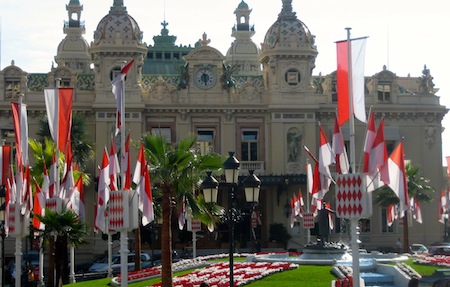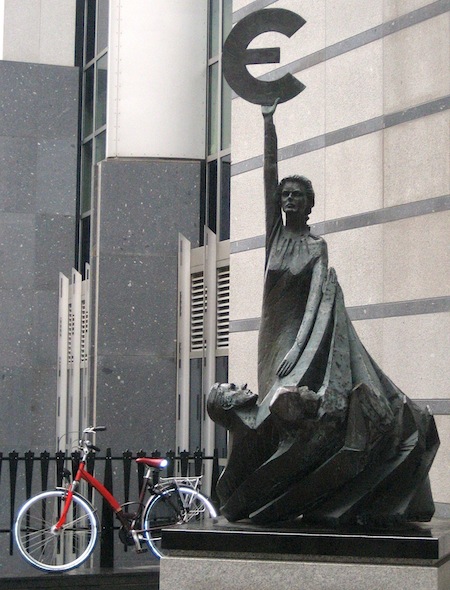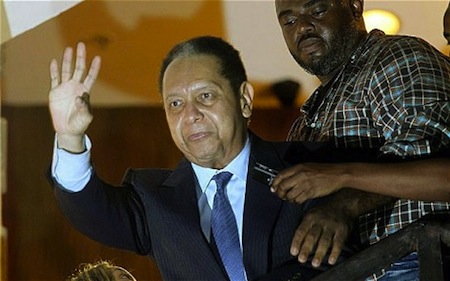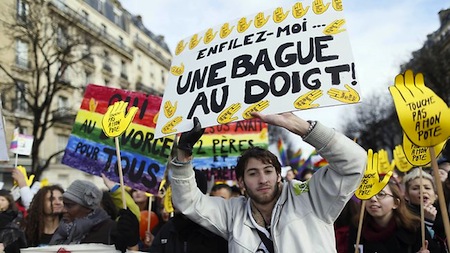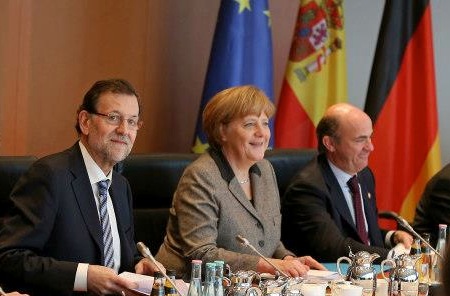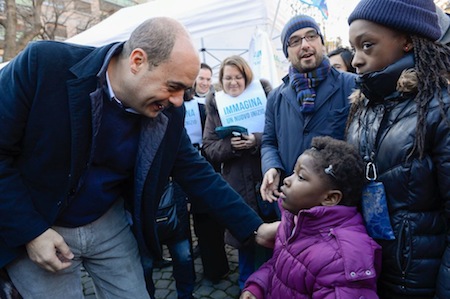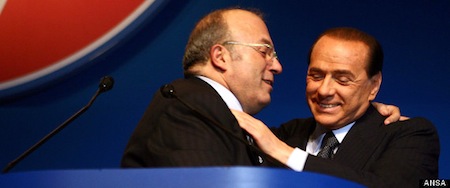
UPDATE: Duck of Minerva considers the political science aspects of choosing a new pope here, and here‘s an even more comprehensive guide to the perceive papabili.
* * * * *
Just days after the Italian electorate picks a new prime minister, the Vatican City will feature different kind of election that could well dwarf global interest in the Italian election — the selection of a new pope.
With today’s shock announcement that he will step down on February 28 as the head of the Catholic Church, Benedict XVI (pictured above) is also stepping down as the head of state of the Vatican City, a sovereign city-state wholly contained within the city of Rome in Italy.
Benedict, the Bavaria-born former cardinal Joseph Ratzinger, who was elected pope in April 2005 upon the death of his predecessor, John Paul II, is the first pope to resign the papacy since Gregory XII in 1415.
His resignation, however, is certain to initiate a consideration of his nearly eight-year pontificate, including what’s been seen as a somewhat conservative view within an already-conservative institution with regard to homosexuality and the advent of same-sex marriage, the use of condoms to stop the spread of HIV/AIDS, the role of women in the Church and the role of the Church in the secular world. In addition, Benedict has overseen the fallout from widespread emergence of sexual abuse scandals within the Church, including his own supervisory conduct involving a German priest who committed abuses in the 1980s.
The College of Cardinals — the group of 209 top officials of the Catholic Church — will assemble in the Vatican’s Sistine Chapel to choose Benedict’s successor, although under canonical law, only those cardinals who have not reached the age of 80 at the time of the papal conclave are eligible to vote.
Currently, that means the body of electors for the next pope totals 118 cardinals — and on February 26, that group will shrink to just 117 upon the 80th birthday of Ukrainian bishop Lubomyr Husar.
Theoretically, the College of Cardinals may choose anyone as the next pope; realistically, however, they are almost certain to choose someone from within their own ranks, and speculation over Benedict’s successor begins with Italian cardinal Angelo Scola.
Scola, who was born in Lombardy in north-central Italy and is the son of a truck driver, would be the first Italian pope since the elevation of John Paul II to the papacy in 1979.
Scola, currently the archbishop of Milan, was from 2002 to 2011 the patriarch of Venice — notably, three previous popes in the 20th century (Pius X, John XXIII and John Paul I) previously served as patriarch of Venice prior to their own elevations to the papacy. At age 71, Scola is old enough to have been considered as a potential successor to John Paul II in 2005, but relatively young enough today to remain the papal frontrunner.
Close to the Communion and Liberation movement within the Church, Scola has been a vigorous proponent of the Church’s internationalization efforts, and his elevation as pope would mean a learned scholar with the intellectual and stylistic gifts to promote the Church’s role in an increasingly secular Europe.
Given that Benedict appointed 22 new cardinals in January 2012 — 16 of whom were European and seven of whom were Italian — it seems likely that the next pope will once again be Italian and, indeed, each pope from 1522 until 1979 was Italian.
Additional candidates — in the sense that they have been discussed prominently as papabili include Tarcisio Bertone, former archbishop of Genoa and the cardinal secretary of state (essentially the ‘prime minister’ of the Vatican); Angelo Bagnasco, the current archbishop of Genoa; and cardinal Gianfranco Ravasi, a scholar who serves as president of the Pontifical Council for Culture.
But that doesn’t mean there won’t be non-Italian candidates, and the inescapable fact is that the Church is becoming less European and more global — with an increasingly large profile in Africa and Latin America.
Two African cardinals — Peter Turkson of Ghana and Francis Arinze of Nigeria — are often at the top of lists to succeed Benedict. But at age 80, Arinze may be a little too old (Benedict was 78 upon his election, the oldest person to be elevated to the papacy in nearly three centuries), and his uncompromising conservatism may not wear incredibly well. Turkson, at age 64, became a cardinal only in 2003 and is a more tantalizing possibility — he speaks six languages and has been a voice in the past for reforming the international financial system in a way that’s more equitable for developing countries.
The former archbishop of Québec, Marc Ouellet, at age 68, is also mentioned as a top choice and like Scola, is seen as close to Benedict and would certainly bring a more (relatively) youthful and cheery countenance to the papacy in an era of increasingly sophisticated communications.
Additional non-Italian candidates discussed as papabili include Argentine cardinals Leonardo Sandri and Jorge Mario Bergoglio, the latter serving as the current archbishop of Buenos Aires, and Honduran cardinal Óscar Rodríguez Maradiaga, a moderate who has spoken out vigorously on the issue of human rights and the elimination of debt for the developing world.
Continue reading Benedict’s resignation sets stage for upcoming papal conclave →
![]()
